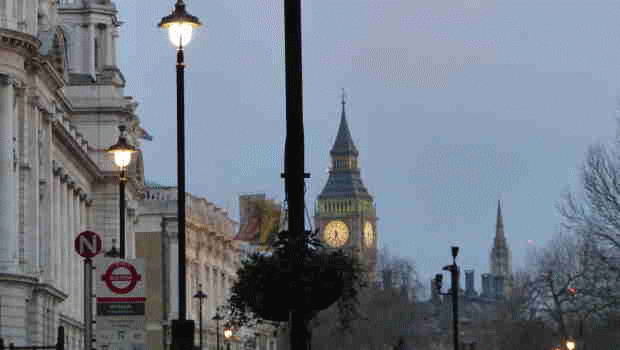London pre-open: FTSE 100 set to follow Wall Street higher

London stocks were set to open higher on Tuesday, after Wall Street indices turned around a global sell-off overnight to close in positive territory.
The FTSE 100 was set to open 0.99% higher as of 0741 BST.
“Concerns about a global economic slowdown, driven by rising covid infections in China, saw the FTSE 100 hit its lowest levels in a month yesterday,” said CMC Markets chief market analyst Michael Hewson.
“China’s strict zero-covid policy, is raising concern that the Chinese government will struggle to get anywhere close to its 5.5% GDP target this year.
“The increased transmissibility of Omicron always made the prospect that a zero-Covid policy was likely to fail, with Australia and New Zealand admitting defeat by throwing in the towel on it.”
Hewson said that for China, however it could be the “least bad option”, given the vulnerability of its health care system to rising cases, meaning city-wide lockdowns lasting for weeks on end could be the reality.
“It is these concerns that appear to have driven yesterday’s move lower, along with a sharp decline in commodity prices.
“On the plus side, these concerns over demand destruction could well offer a welcome respite for hard pressed consumers in the form of lower fuel prices at the pumps, after Brent crude prices fell below $100 a barrel yesterday.”
Fears over the current Covid-19 situation in China continued to weigh on sentiment, but a rally in technology plays stateside helped to turn things around in New York.
Also in focus was the news that Twitter’s board would accept a $44bn offer from Elon Musk to take over the social network.
On the economic front, public borrowing was almost a fifth higher than forecast, according to data from the Office for National Statistics.
UK public sector net borrowing totalled £151.8bn for the 2021-2022 financial year - comfortably topping the £127.8bn pencilled in by the Office for Budget Responsibility just last month.
The total for the year was more than £165bn less than in the prior financial period, when the government spent huge sums to support the economy during the worst of the Covid-19 lockdowns.
It was, however, still the third-highest figure since records began in 1947.
Borrowing was below expectations in March, however, coming in at £18.1bn, compared to the £19.25bn expected in a Reuters poll.
In equities, housebuilder Taylor Wimpey said it was trading in line with full-year expectations and that it remained on track to deliver against guidance set out at the time of its 2021 full-year results.
Taylor Wimpey stated its net private sales rate for the year ended 17 April was "strong" at 0.96, down only slightly from 1.00 in the equivalent period a year earlier, with cancellation rates flat year-on-year at 14%.
The FTSE 100-listed firm also added it was continuing to see "healthy levels of house price growth" that had offset labour and material cost inflation.
HSBC reported a 28% fall in first-quarter profits due to higher-than-expected credit losses and inflation.
The bank posted pre-tax profits of $4.2bn for the three months to March, with revenue down 4% to $12.5bn. It reported an expected credit loss of $600m, compared with a release of $400m from the same period last year.